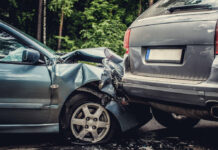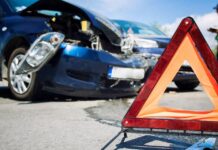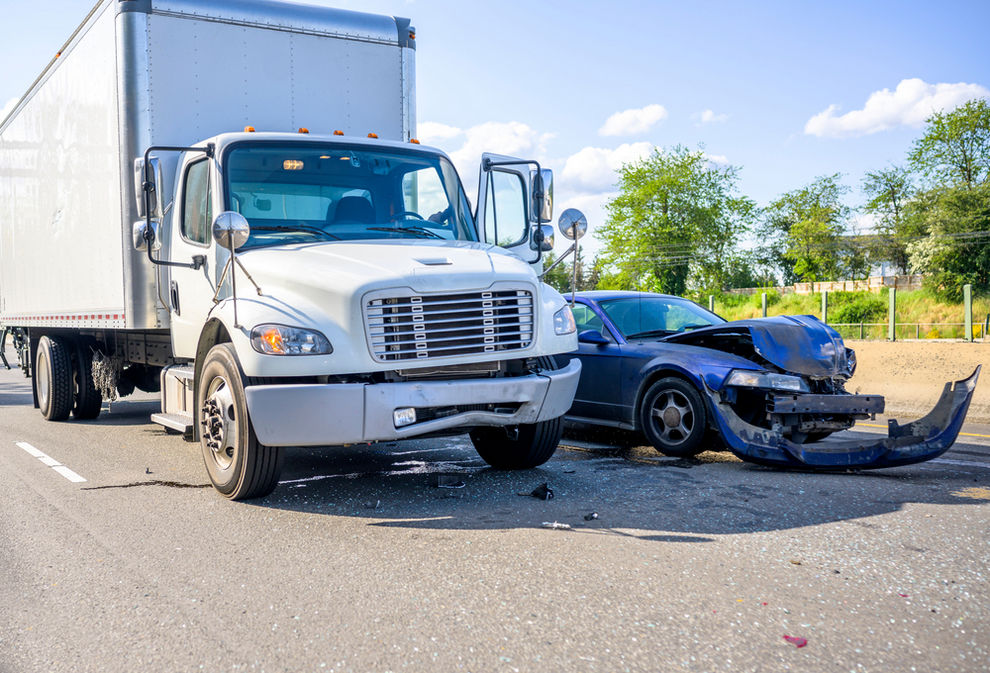
In a single year, companies in the United States paid out $25 billion due to work-related car accidents. Among these claims, settlements ranged from $65,000 for injuries to $650,000 for fatal cases. Where does that money come from, though?
In these accidents, it is common for injured victims (or their families) to seek compensation from the company’s commercial vehicle insurance policy. Work vehicle collisions are more common than many people believe. Any car accident attorney can tell you how often they assist victims of truck accidents involving a UPS or FedEx truck.
However, no matter how minor or severe the accident is, these wrecks quickly become complex. Moreover, they often add far more stress to an overwhelming situation.
Below, we explore liability in these work-related car accidents.
NOTE: Liability varies by case due to a range of variables. To learn more about your legal options, discuss your case with an experienced attorney.
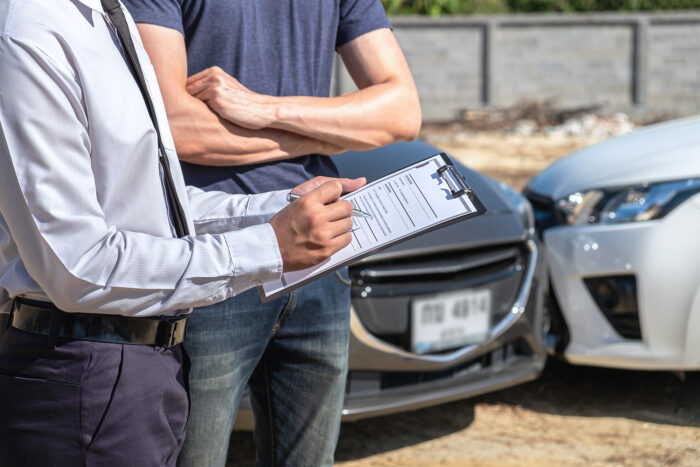
Who Is Responsible in a Commercial Vehicle Collision?
After a work vehicle accident, an employer often bears liability when the employee is within the scope of their employment at the time of the accident. However, this same rule keeps the company from bearing liability in the event an employee is not “on the clock.”
For example, this includes lunch breaks and the employee’s commute. Still, it’s important to understand that exceptions exist. That is why it is crucial to seek legal counsel from an experienced attorney.
The Difference Between Workers’ Comp and Liability Policies
As you deal with a company car collision, there are different types of insurance that come into play.
Workers’ compensation covers employees who sustain an injury at work. Typically, this includes medial bills that result from work-related car accidents. It can also include some of the lost income if they are out of work to heal.
It’s good to remember that employees hurt while in a personal vehicle for a work-related purpose may also be eligible for this coverage.
Liability insurance policies cover damages sustained by a third party – anyone not affiliated with the company. Often, this coverage protects employees from having to cover the costs paid to a victim personally.
Generally, liability insurance covers medical bills, pain and suffering, and lost wages. Additionally, it can cover legal fees in the event of a lawsuit.
General liability coverage pays for damages in a variety of situations that occur on company property.
Companies often carry commercial vehicle insurance policies. These work similarly to the average personal car insurance. However, the coverage limits are often significantly higher.
If you drive for your job and your company doesn’t provide adequate coverage, it’s important to protect yourself. In some situations, personal car insurance providers deny claims if you use your personal vehicle for work. This is easy to avoid by investing in a “rider,” which is additional coverage. These add-ons cover accidents that occur as you use your vehicle for work. While your rates are likely to increase, your employer might help to cover the costs.
All insurance policies have fine print, though, so there are exceptions and conditions to keep in mind. Whether you are a third-party victim or an employee, insurance providers use every trick in the book to avoid paying for expenses.
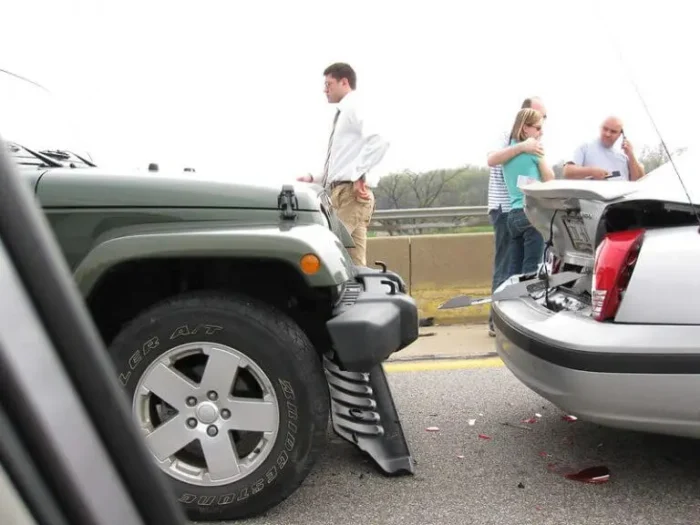
Work-Related Car Accident Scenarios
What counts as a work-related car accident? This situation covers several different scenarios, so it’s important to understand the variety of incidents in which an employer may be liable.
Hit By Someone Driving a Company Car
From delivery companies to trucking companies, plenty of people operate commercial vehicles and company-owned vehicles. Whether in Houston, San Francisco, or New York, drivers share the road with rideshare drivers, taxis, buses, and construction vehicles. So, what happens when one hits your vehicle?
Context is important because a company is liable only when the accident happens during work hours. Outside of this, they might not bear responsibility for your damages.
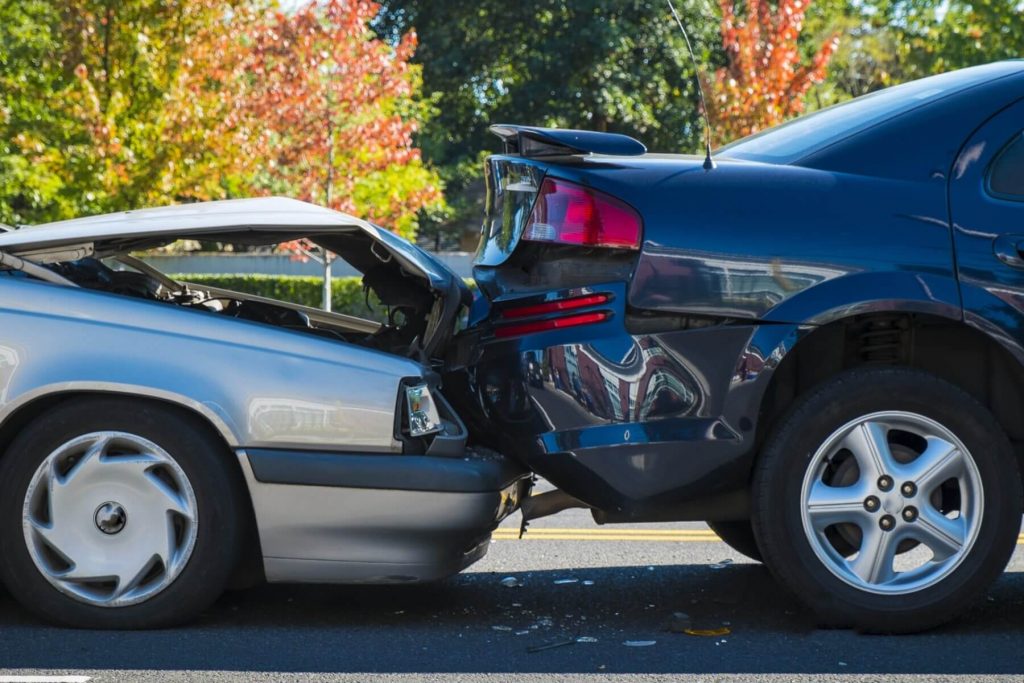
In An Accident While Driving a Company Vehicle
This may vary by state, so it’s important to speak with a local attorney. In Texas, for example, a company can be held liable for an accident involving an on-duty employee. However, there are limitations to this. Typically, corporate insurance policies do not cover these situations:
- Driving under the influence of alcohol or drugs
- Driver commits a crime (including speeding)
- “Frolic,” or running a personal errand
- Independent contractors using their personal vehicle
In these incidents, the company may not be liable. Still, many companies have an accident policy for company vehicles. Uber and Lyft, for instance, have their own policies for insurance coverage.
In order to protect its profits, a company may also try to shift blame or accuse an employee of acting outside the “scope of employment” or in an irresponsible manner. Additionally, they might investigate your driving record to show a history of accidents.
In an Accident While Driving a Personal Vehicle
Unfortunately, this typically does not fall under employer liability. In these cases, you may need to use your personal car insurance policy – or file a claim against the other driver’s insurance provider.
However, if you are at-fault, and the other driver’s damages exceed your liability coverage limits, they may be able to file a claim against your employer.
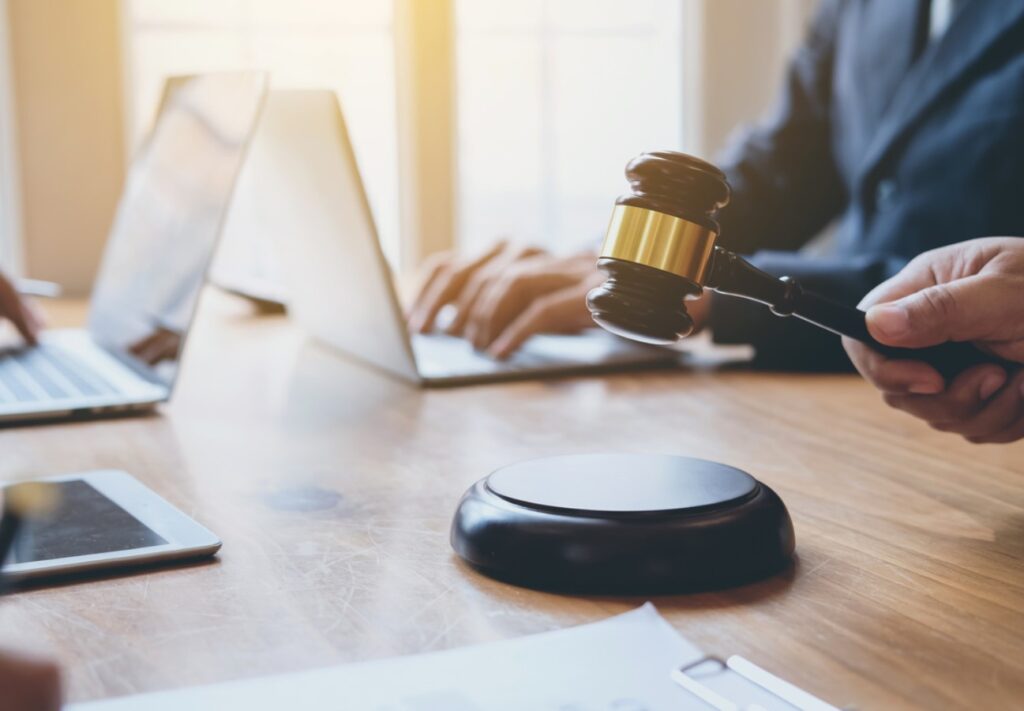
When Is an Employer Liable?
Commercial vehicle accident laws vary from state to state. That’s why it’s always a good idea to discuss your accident with an attorney.
Here are a few examples of when an employer might be liable for work-related car accidents.
- Failure to properly maintain work vehicles
- Lack of adequate training
- No requirement for proper licensing or certification
Additionally, there are instances wherein companies pressure employees to break laws or violate regulations. In these instances, it’s possible to hold the employer accountable. For instance, if a truck driver has an overloaded schedule that violates “hours of service” rules, it can lead to exhaustion and falling asleep behind the wheel.
Company vehicles also need to be safe to operate. It is the responsibility of the employers to ensure this. That includes routine maintenance as well as safety inspections. In the event of a mechanical failure, the company may be liable.
With the right training, maintenance, and safety, many commercial collisions are preventable. However, negligence by an employer or employee can put everyone on the road at risk.
When someone else’s negligence causes you harm, you have rights.


